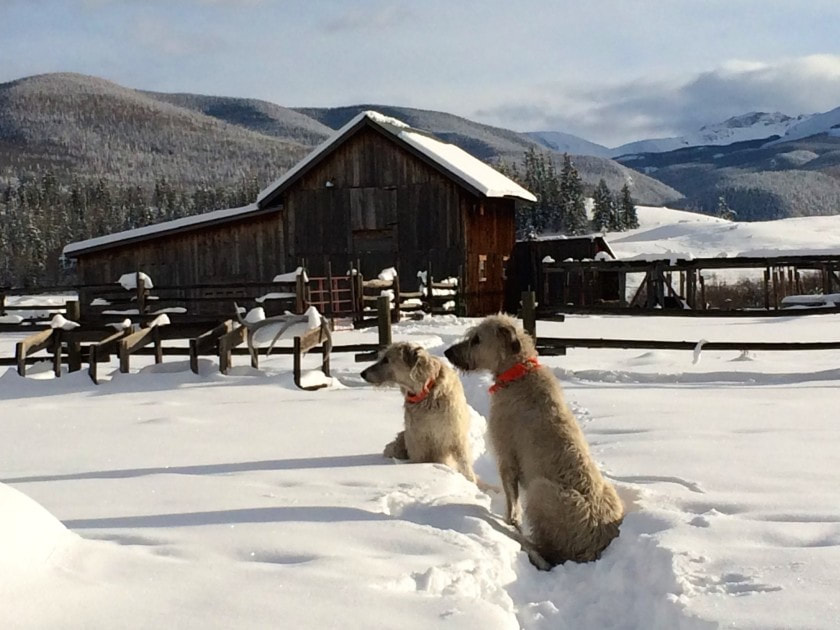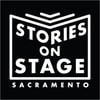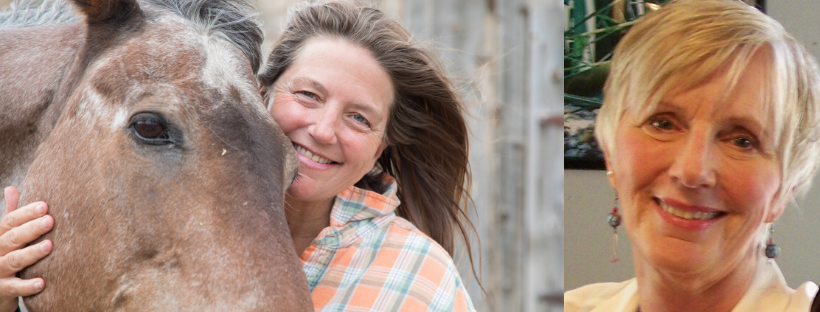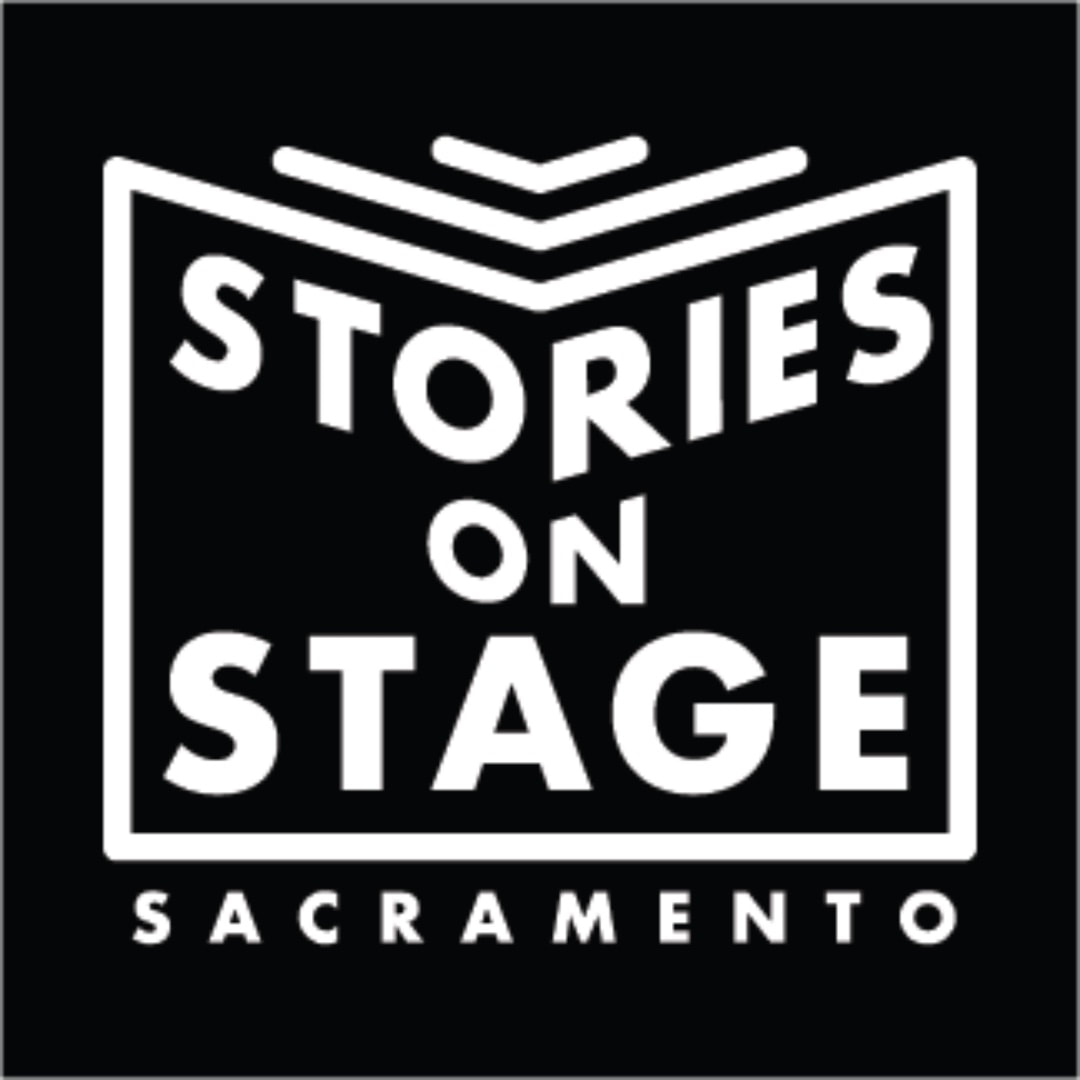 The Ranch (Photo by Pam Houston) The Ranch (Photo by Pam Houston) Our January 31, 2020 Opening Night has us feeling all new year-ish. You'll see why when you meet author Pam Houston for a performance of her story, “Eating Phoebe” (an excerpt from Deep Creek: Finding Hope in the High Country). Her story will be read by Caro Marks and directed by Peggi Wood. Author interview: Pam Houston Our former director, Sue Staats, interviewed Pam about her new book, her writing, and who and what inspires her. Read on for insight into what we'll hear on Opening Night. Pam burst onto the literary scene in 1992 with the publication of Cowboys Are My Weakness, a collection of short stories about smart, adventurous women in love with unpredictable men. The collection quickly became a best-seller, was named a Notable Book of 1992 by the New York Times, and won the 1993 Western States Book Award. With the $21,000 advance she’d received for Cowboys, Pam heeded the advice of her agent, who told her not to spend it all on hiking boots. She put the money down on a 120-acre ranch in the Colorado high country, near the headwaters of the Rio Grande and, for the past twenty-five-plus years, it’s been her home. Like her dogs and horses, and her own life, the ranch has inspired her fiction but, surprisingly, only now has it truly had a voice of its own, in Deep Creek: Finding Hope in the High Country, published in January 2019. Sue: Pam, reviewers of Deep Creek have called it “inspiring” and praised it for “scorching honesty and heartfelt reflection.” Several have found a relationship between Cowboys are my Weakness and Deep Creek, a sort of coming home for the character that reflects increasing age and wisdom. Does this seem accurate to you? Pam: Well, I would like to believe that almost everything about me is different than it was when I wrote Cowboys. I was in my late 20’s when I wrote it, and now I am in my late 50’s and if most things about me are not different I am not doing a very good job being alive. I do think in a certain way Deep Creek is the answer to the question, “What ever happened to that Cowboys woman?” When I wrote Cowboys, I hadn’t learned too much about self-implication, that is one big difference. Also, I wrote Cowboys in graduate school, so most of the decisions I made on the page were either to impress, or to contradict my teachers, who were all, incidentally, men. It’s been a long time since I wrote out of those impulses. Sue: Another review--this time a Kirkus starred review--found Deep Creek “… a profound and inspiring love letter to one piece of Earth—and to the rest of it, as well.” It occurs to me that, in these cynical and upsetting times, a book that subtitles itself Finding Hope in the High Country better deliver, and to me Deep Creek does that, and more, in the engaging small stories of ranch life, in the narrative of larger and more dramatic events, such as a heart-stopping narrative of the West Fork Fire, which nearly destroyed her property, and in the quiet observations of nature surviving and figuring out how to continue, in the face of our stubborn efforts to destroy it. Did you intend all this, when you set out to write it? Pam: When I began writing Deep Creek, my mantra was to “write deeply into the pasture.” I had just written a book called Contents May Have Shifted, which was all about motion, all about movement, and now I wanted to write a book about being still. I wanted it to be extremely ranch-centric, not about my past, or my bad boyfriends, or really me, very much. I wanted to pay tribute to the ranch. I wrote that book and nobody liked it, not my editor, not my agent, not even, really me. So I pulled my childhood into the book from the past, and the climate catastrophe and my feelings about it from the future (well, and the present) and the ranch became a scaffolding that those two subjects could meet over. The book is still very much about the ranch, but it has these other two big subjects in it now that the ranch illuminates. Sue. Because your ranch is clearly the cornerstone of your life, it must feel hugely risky to leave it and your animals in the care of others for long stretches. And of course things have gone wrong, as the chapter entitled “Eating Phoebe,” which will be read at your appearance at Stories on Stage Sacramento, shows us. Do you worry all the time when you’re away? How do you select your ranch sitters and has this changed since the Phoebe incident? Pam: Leaving the ranch and my animals has never felt like a choice. First, there is no way for me to make a living in Creede. Second, I am a teacher first, a writer second. An increasing portion of my energy over the years I have poured into teaching, in to mentoring my students’ books into the world. I teach in the graduate programs at UC Davis, and the Institute Of American Indian Arts, and I cofounded a nonprofit called Writing By Writers that puts on ten multi-day writing instruction events a year. When I walk into any given bookstore now I can point to anywhere between twenty and thirty books that I helped mentor into the world, and when I say that I might mean deep editing, and I might also mean convincing that writer to believe in herself, to believe in her story. That is what I consider my real work on this planet to be. The writing is also important to my sanity, and it lets me teach in good places, but the teaching is what makes my life feel valuable. Also, if the truth were to be told, I would not want to spend 365 days at the ranch. I like bookstores and sushi and theater and democrats and the ocean too much not to at least visit then occasionally. But since you asked: yes, the Phoebe incident changed how I select ranch sitters, and it changed how many weeks in a row I stay away. I have always chosen my housesitters based on intuition. If I see someone who I believe has a good head on their shoulders, who has some affinity to animals, who seems the opposite of a whiner, who I believe will be able to handle being alone, and who is working on a project where they need a quiet space. You would be amazed at how many people can’t handle being alone. Almost anyone can learn how to do the daily tasks at the ranch, it is the psychological component of being alone, of having to think on your feet, that eliminates people. I try to avoid people who lie by omission. These days one question I ask is, will you be able to get down on the floor and look into Livie’s eyes and tell me whether or not she is happy. I also ask a lot of questions about drinking and drug use these days. Sue: You find, as your subtitle suggests, hope in the high country. And there are many, many wonderful examples of that, my personal favorite being your finding of the greening pond in the middle of the fire’s destruction, which works so well as a scene and on so many levels as a metaphor. But it made me wonder, is nature’s ability to survive, to rejuvenate, your only source of hope? Of are there others? Pam: As dangerous as our position is these days, as we teeter on the brink of fascism and almost certain annihilation at the hands of the climate deniers (and capitalism), I do find hope among the actions of humans to go along with the hope I find constantly and reliably in nature. And the more this administration tries to poison us, the more children they kill, the more human friendly legislation they obliterate, the more we are going to see good people, standing up, speaking out, lending a hand. I also find tremendous hope in what the young people are doing and saying, Greta, of course, and the Parkland kids and so many others. We haven’t left them much of a world, and I feel terribly ashamed about that, but they are going to do amazing things with what little they have been given. Sue: One of the primary ways you teach writing is to encourage your students to pay attention to, and write down, what you call “glimmers”--observations of the real world that, as you dig into them, take on breadth and depth and increased meaning. What were the primary glimmers that inspired Deep Creek? Pam: My barn, in every light, in every season. The weekend of Fenton’s death. The whale, caught in the net, in the sea of Cortez. My first view of the cabin after RJ fixed it up. Everything Doc Howard has ever said. The West Fork fire, most specifically the day it ran 7 miles towards us. Becky Barkman, driving through the smoke to get my horses. My mother shrinking that handpainted skirt I bought at an art fair. The coating I have to put on the house every year where no matter what I do I can’t follow the directions. The elk caught in the fence. The night trips to the barn when it is 30 below (had one last night, in fact.) The sound of horse teeth on hay in the snow. I could, obviously, go on, but these are the first ones that jumped to mind. Sue: For 15 lucky Sacramento writers, you’ll be teaching a generative workshop as part of your appearance at Stories on Stage Sacramento. How do you conduct a generative workshop? What should people expect? Which do you prefer teaching: generative or manuscript workshops? Pam: I like generative and manuscript workshops equally, though they are very different animals. I like the way everyone is in a good mood at a generative manuscript, that no one is drenched in anxiety waiting for critique (which will not come). I like the buzz of energy in the room when everyone is writing. But I also like getting my hands inside a manuscript, trying to figure out its intuitive and internal architecture, and how to make it do what it is already trying to do even better. At the workshop in a few weeks we are going to write together. We are going to write from the big pot of metaphor soup we are all carrying around inside us. We are going to let the physical world stand in for our emotional world and hopefully everyone will go home with some starts they want to work forward from. Sue: Thanks, Pam, for taking time during your holiday break to answer these questions. And as a matter of full disclosure: in February of 2007 I was Pam’s housesitter on her ranch--feeding and caring for these same horses, different dogs, possibly the same cat. This was before the sheep, chickens and donkeys came to live there, so my tasks were simpler. I remember thinking before I arrived that I would write all day every day but what I ended up doing was reading, listening to music and staring out of the kitchen window at the mountains and the sky. I believe I came home with a few pages written in a journal and six lines of a poem. Also fully restored and indelibly marked by the beauty of the place, which this book brings back to me. I am grateful. Make your donation and reserve your spot at Eventbrite.
0 Comments
|
|
Who We AreLiterature. Live!
Stories on Stage Sacramento is an award-winning, nonprofit literary performance series featuring stories by local, national and international authors performed aloud by professional actors. Designated as Best of the City 2019 by Sactown Magazine and Best Virtual Music or Entertainment Experience of 2021 by Sacramento Magazine. |
|


 RSS Feed
RSS Feed
